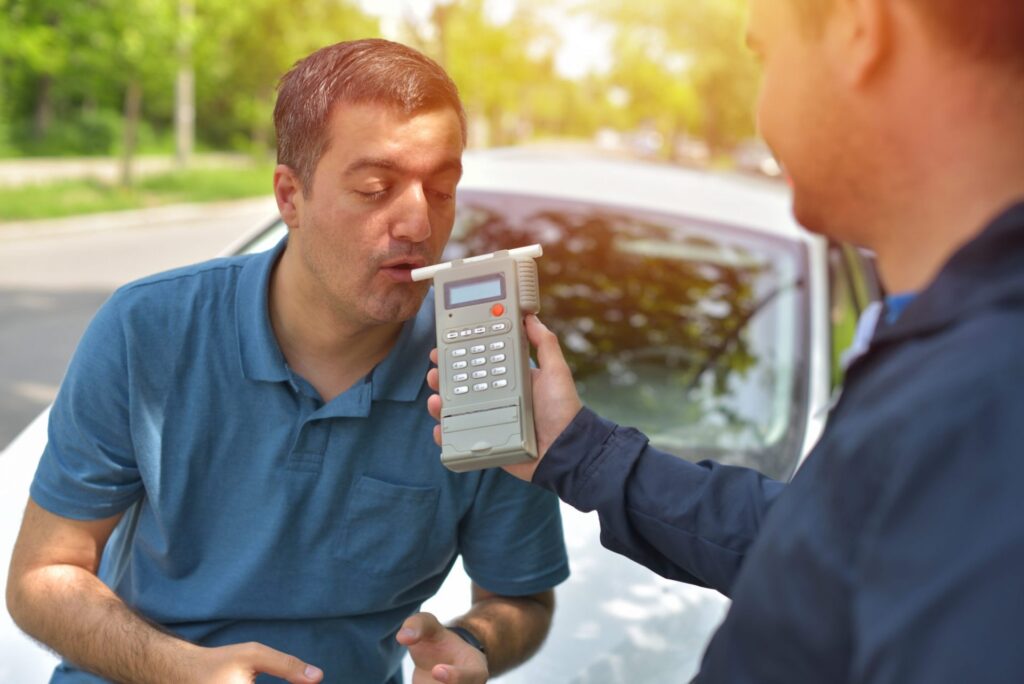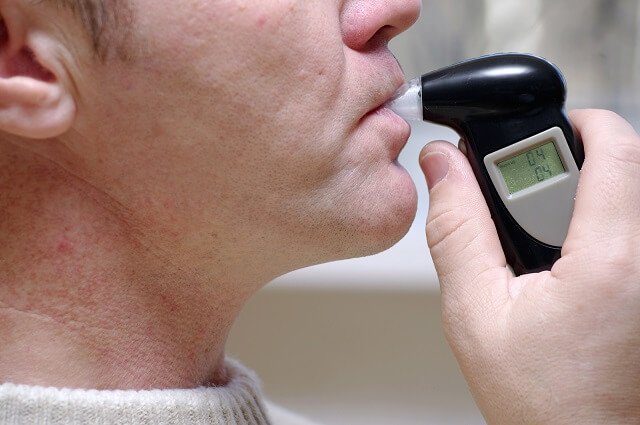If you’ve ever been pulled over and heard the officer mention a PBT breathalyzer, your first thought was probably: what exactly is this device, and how will it affect my situation? The terminology may sound highly technical, but understanding the legal framework around PBT breathalyzer law can make a significant difference if you’re facing DUI or DWI charges.
In this thorough guide, we’ll dive into the most frequently asked questions about PBT breathalyzer law. We’ll explain how these portable devices work, how officers rely on them during traffic stops, and what rights drivers have when asked to submit to one. Through relatable real-life scenarios, we’ll clarify the complex legal landscape so you can confidently handle any encounter involving a PBT breathalyzer.

What Is a PBT Device?
A Preliminary Breath Test (commonly abbreviated as PBT) is a small, handheld machine used by officers to estimate a driver’s blood alcohol concentration (BAC) during traffic stops. Unlike the larger, more advanced evidentiary breath machines used at police stations, these devices are strictly for on-the-spot screenings.
These devices provide an initial BAC estimate, which helps officers determine whether they have probable cause to continue with a DUI investigation. While the readings from this tool may not end up as official evidence in a courtroom, they can strongly influence the course of the investigation.
Real-Life Story: James and the Unexpected Arrest
James was heading home from a night out when he was stopped for a broken taillight. After noticing the smell of alcohol, the officer administered field sobriety tests and then pulled out a small PBT breathalyzer. James blew into it, producing a BAC reading of 0.09. That reading led to his arrest for DWI on the spot. What James didn’t realize was that PBT breathalyzer law treats these roadside devices very differently from the more formal breathalyzer tests conducted at the police station later.
Are These Results Valid in Court?
This is one of the most frequently asked legal questions. The answer: it varies by jurisdiction.
In many states, preliminary breath test results are considered too unreliable for direct use in trial. Courts understand that factors like calibration issues, weather, or user error can distort these readings. However, officers may still rely on them for:
- Establishing probable cause.
- Deciding whether to request a certified breath or blood test.
- Supporting observations of driver impairment.
So, while the preliminary readout isn’t always admissible evidence, it can still play a major role early in the process.
How Reliable Are These Portable Testers?
One of the primary criticisms surrounding these devices is their accuracy. While convenient, they are less dependable than their certified counterparts at the police station. Several things may affect reliability:
- Poor or irregular calibration.
- Inadequate training for officers.
- Environmental factors like cold air or wind.
- Residual mouth alcohol from products like mouthwash.

Because of these variables, courts generally treat preliminary roadside testers as screening tools—not conclusive proof.
Real-Life Example: Sarah’s Surprising Results
After a quiet dinner with just one glass of wine, Sarah was stopped for swerving. The portable tester read her BAC at 0.10—above the legal limit. However, the station’s certified machine later revealed a BAC of only 0.04. This difference highlights why many courts treat preliminary results with caution.
Can You Refuse a PBT Breathalyzer?
Another common question revolves around the legality of refusing a PBT breathalyzer. Your rights in this situation vary depending on where you are.
- In many states, PBT breathalyzer law separates preliminary breath tests from official chemical tests under implied consent statutes.
- Some jurisdictions impose no penalties for refusing a PBT.
- In others, refusal may support an officer’s decision to arrest you or result in limited administrative penalties.
It’s important to distinguish a PBT breathalyzer from an official chemical test, which, if refused, can lead to license suspension or harsher legal consequences under implied consent laws.
Should You Consent to a PBT Breathalyzer Test?
Whether or not you should agree to a PBT breathalyzer depends on several factors. While refusal may escalate an officer’s suspicion, consenting could lead to an inaccurate reading that complicates your defense later.
Key factors to consider include:
- How much you’ve actually consumed.
- The legal requirements in your specific state.
- Your prior legal or driving record.
- The availability of legal counsel at the time.
Many experienced DUI defense attorneys suggest caution with roadside tests due to the known limitations surrounding PBT breathalyzer law.
Real-Life Story: Kevin’s Calculated Refusal
Kevin had two beers earlier that evening. When pulled over, the officer requested a PBT breathalyzer test. Kevin, aware of his rights, politely declined based on his state’s laws. He was still arrested, but the formal breathalyzer at the station revealed a BAC of only 0.05, leading to dismissed charges. Kevin’s understanding of PBT breathalyzer law preserved stronger defense options for him.
How Are PBT Breathalyzers Different From Standard Breathalyzers?
Understanding the differences between PBT breathalyzers and official evidentiary breathalyzers is essential under PBT breathalyzer law since they carry vastly different legal implications. Officers typically use PBT breathalyzers at the roadside to screen for alcohol impairment quickly. These are handheld, portable devices that offer immediate readings. Conversely, official breathalyzer machines located at police stations are stationary, regularly calibrated, and designed to provide accurate, court-admissible evidence.
The key distinction lies in the level of oversight and accuracy. While PBT breathalyzers are prone to environmental interference and irregular maintenance, official evidentiary breathalyzers undergo strict regulatory inspections. Courts place significantly more trust in results obtained from the certified machines because of their controlled testing conditions and verified accuracy.
Are PBT Breathalyzers Required by Law?
Many drivers mistakenly believe that compliance with a PBT breathalyzer is mandatory during DUI stops. In reality, this often isn’t the case:
- Officers may request a PBT breathalyzer based on their observations.
- Drivers usually have the right to refuse under certain state laws.
- Mandatory compliance generally applies only to official breath tests conducted after arrest.

Always clarify whether the test is preliminary or official before agreeing to blow into any device.
Real-Life Story: Maria’s Costly Misunderstanding
Maria assumed she had no choice but to take the PBT breathalyzer when asked. The inflated reading contributed to stricter pretrial conditions, including bail restrictions and a temporary license suspension—even though later tests showed her BAC well below the limit. Maria’s experience demonstrates why knowing your rights under PBT breathalyzer law is so important.
Can a Lawyer Challenge PBT Breathalyzer Results?
Absolutely. An experienced DUI attorney will often challenge PBT breathalyzer results as part of a strong legal defense strategy. Common challenges include:
- Device calibration lapses.
- Officer’s lack of proper training.
- External environmental factors at the time of testing.
- Lack of legal grounds for initial stop or test administration.
Since these devices are inherently less reliable, PBT breathalyzer law provides many avenues for mounting an effective defense.
Are PBT Breathalyzer Laws the Same Across States?
No—PBT breathalyzer law varies widely between states and even among local jurisdictions. For example:
- Some states completely prohibit introducing PBT breathalyzer results as evidence.
- Others allow limited use for establishing probable cause.
- A few states permit the results during administrative proceedings, like license suspension hearings.
Understanding your particular state’s stance on PBT breathalyzer law can significantly influence the direction of your defense.
Real-Life Story: Robert’s State-Specific Win
Robert faced DWI charges after failing a PBT breathalyzer test. His attorney knew that state law prohibited using PBT results in both criminal and administrative hearings. With no other evidence strong enough to proceed, the prosecution dismissed the charges. Robert’s case shows how state-specific knowledge of PBT breathalyzer law can lead to case dismissals.
Do Officers Always Use a PBT Breathalyzer?
Officers have discretion when deciding whether to use a PBT breathalyzer during traffic stops. Factors influencing their decision include:
- Equipment availability.
- Training and comfort level with using the device.
- Weather or roadside conditions.
- The driver’s behavior during the stop.
Sometimes, officers skip preliminary tests entirely and proceed based on field sobriety tests alone if they believe they have sufficient probable cause.
Can Medical Conditions Affect PBT Breathalyzer Results?
Yes, certain medical conditions can influence readings on a PBT breathalyzer, potentially producing false positives. Examples include:
- Acid reflux or GERD.
- Diabetes (which can produce acetone on the breath).
- Certain diets (like ketogenic diets producing acetone).
- Asthma inhalers or other medications.
These factors further underscore why PBT breathalyzer law treats these results with caution.
How Do PBT Breathalyzers Fit Into Implied Consent Laws?
Implied consent laws primarily apply to official chemical tests, not necessarily to PBT breathalyzer screenings. However:
- Refusing a PBT may still factor into an officer’s assessment.
- Refusing an official chemical test after arrest typically triggers immediate license suspensions or other penalties.

Understanding this distinction can help drivers protect their rights under PBT breathalyzer law during a DUI investigation.
Final Thoughts: Why Understanding PBT Breathalyzer Law Matters
The PBT breathalyzer occupies a gray area in DUI enforcement. While useful for officers making quick roadside judgments, these devices carry significant limitations. PBT breathalyzer law reflects this reality by restricting how preliminary results may be used in court. Knowing your rights and understanding the weaknesses of these devices can dramatically impact the outcome of your case.
If you find yourself in a DUI investigation involving a PBT breathalyzer, consult a qualified DUI attorney immediately. With proper legal support, many of the device’s vulnerabilities may become the foundation of your defense and help secure a more favorable outcome.


